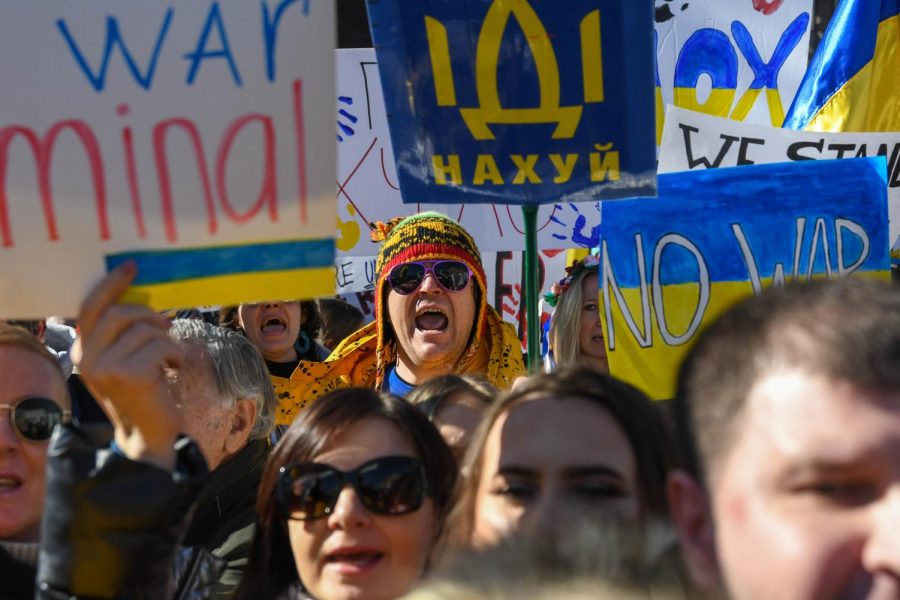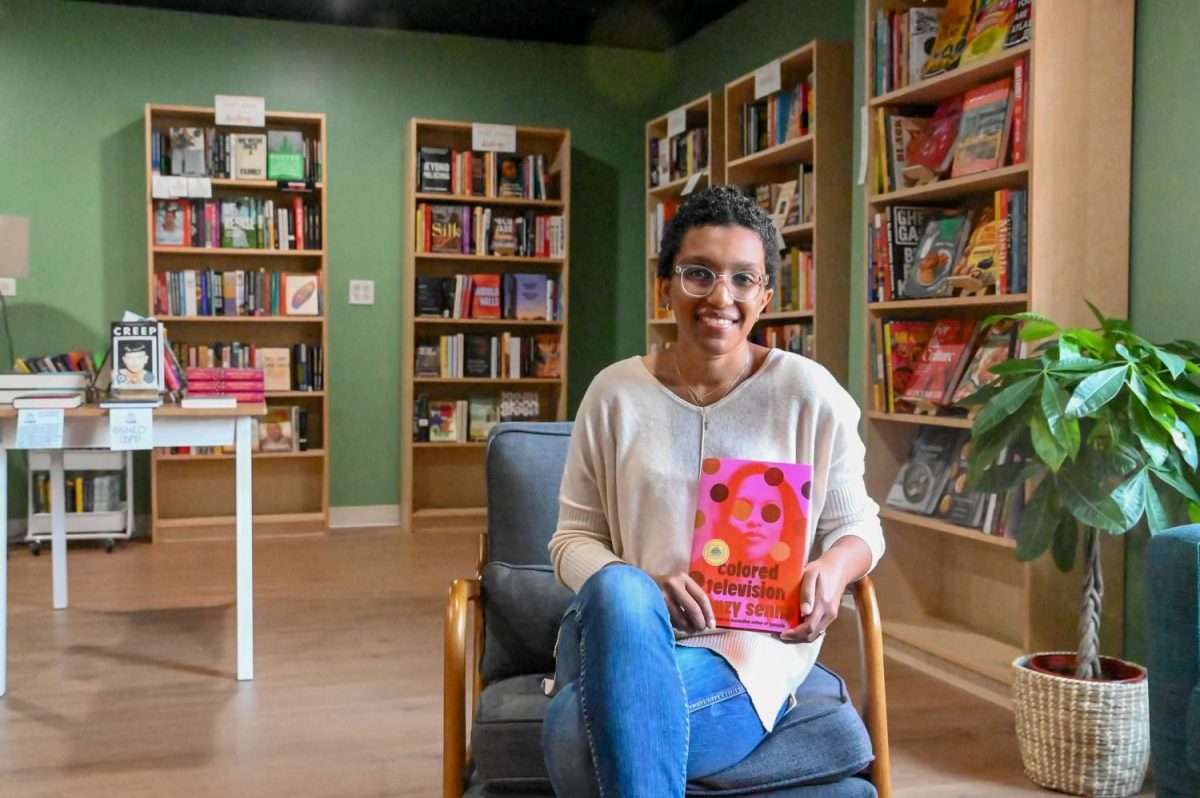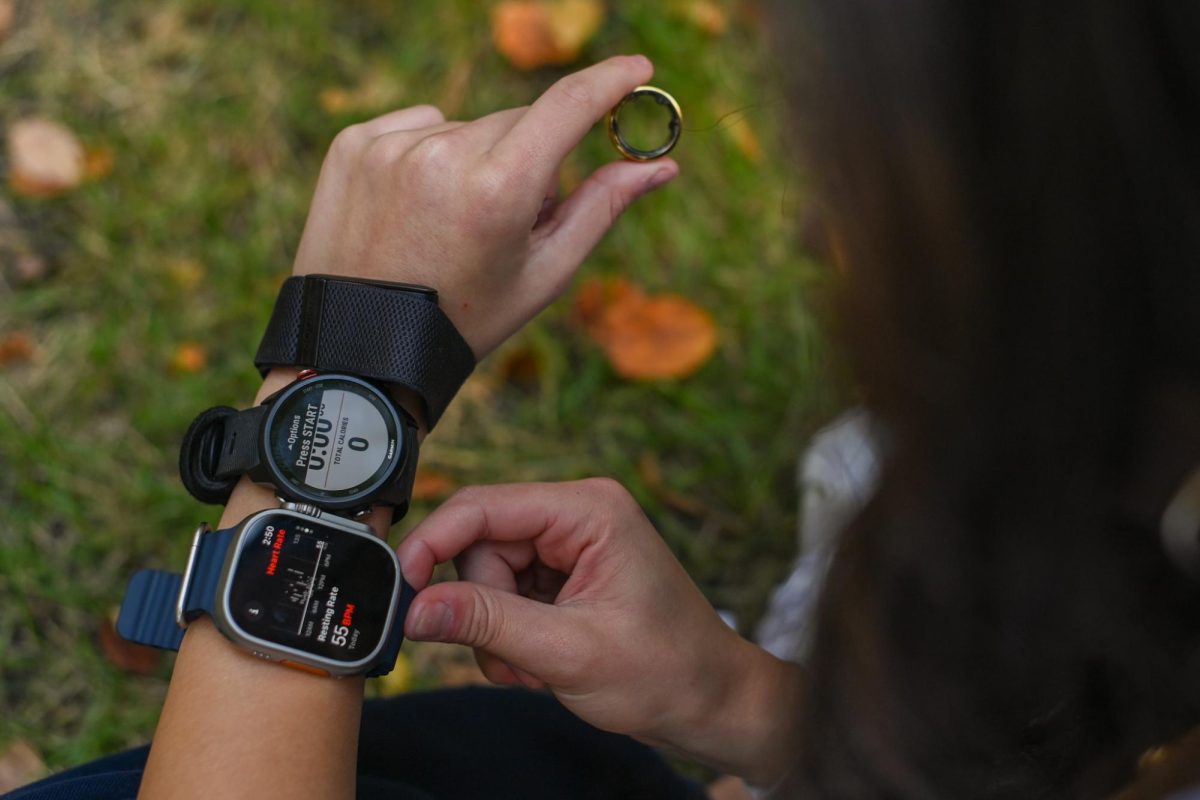Russian invasion shocks, concerns students of Ukrainian descent
UNITED UKRAINE. On Feb. 27, hundreds of individuals gathered in Ukrainian Village with flags and handmade signs to display anger and unity over Russian President Vladimir Putin’s invasion of Ukraine.
March 2, 2022
In the early morning hours of Feb. 24, strikes against Ukrainian targets were initiated by Russian forces. This invasion comes after a long history of aggression from Russia toward Ukraine, starting in 2014 with Russia’s annexation of Crimea and the recent amassing of thousands of Russian troops at the Ukrainian border.
Like the rest of the world, people in the U-High community felt the repercussions of the attacks. While many teachers addressed the incidents in classes, students still feel anxious, concerned and hopeful of what is to come.
Sophia Shimanska, a ninth grader who started at Lab in September, has strong ties to her Ukrainian heritage and relatives in Ukraine. She said the invasion wasn’t something she anticipated.
“Just in general it was all really unexpected,” she said. “I was surprised and worried because I still have family that lives in Ukraine. My immediate response was, ‘Are my family OK?’”
Similarly, Andrew Razborov, a senior of both Russian and Ukrainian descent, said the invasion was a shock that he never foresaw as a possibility.
“We are very fortunate to live in one of the most peaceful times in human history, and you realize that all that can go away at the snap of a president’s fingers,” he said. “I was anxious because I relied on the supposition that everything would be resolved peacefully after this long-mounting tension at the border.”
Sophia’s cultural identity impacted her perception of the war profoundly. For Andrew, even though the war isn’t in his direct vicinity, it still has a personal effect on him.
Sophia said, “I learned to read and write in Ukrainian at a Ukrainian school, so I feel like being Ukrainian deeply impacts who I am.”
She explained her heritage “has really shaped my outlook on this.”
Andrew said that “It’s easier to be dismissive of events that happen halfway across the globe.
“But for me, even though this is happening geographically far away, it’s happening close to my cultural identity.”
Andrew said the conflict has been a part of his daily life for a long time, and because of that, he made sure to do his own research and news from both eastern and western sources to understand the war as best as possible.
“Whenever we’re at the dinner table with the entire extended family in Moscow, it’s always a topic of conversation,” he said. “We have input from a lot of differents sides like my Russian and Ukrainian grandfathers.”
The invasion is still developing, leaving millions wondering what’s to happen in the near and long-term future. Sophia said that she has hopes for Ukraine to persevere through the attacks.
“Ukraine has been fighting for its independence for such a long time. I just wish for Ukraine to get what it wants, which is independence and freedom for its people,” she said. “I just want everything to be OK. I don’t want innocent people to be killed anymore.”
Andrew said he wants for Russia and Ukraine to be able to cooperate and coexist soon.
“What I would like to see come out of this is that there is peace and a long-term cultural understanding and a strong and durable political and economic relationship between Russia and Ukraine,” Andrew said. “Hopefully it’s moving that direction.”












